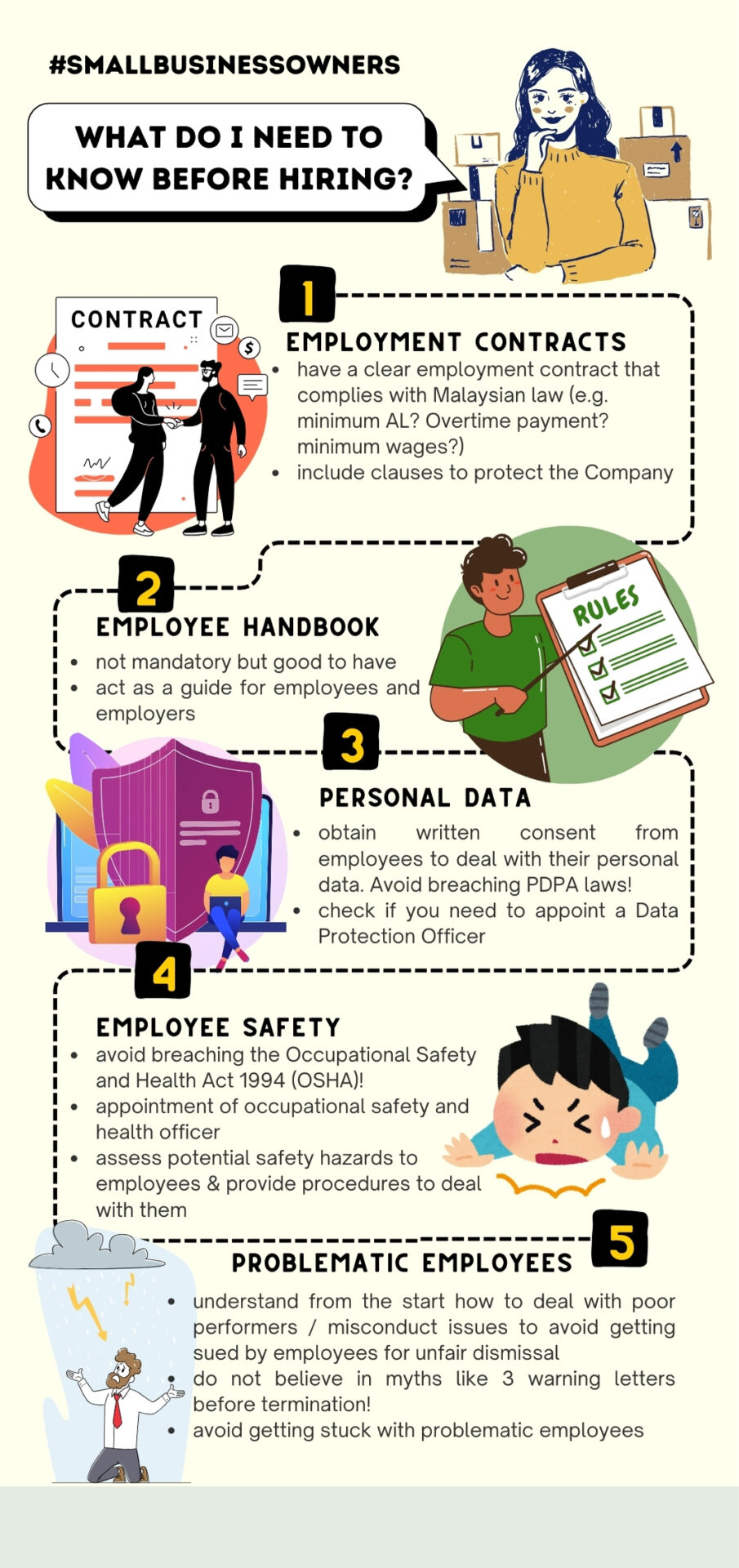
WHAT DO I NEED TO KNOW BEFORE HIRING?
Hiring an employee is not just about paying someone monthly to do the job. There are various other aspects that you need to know to ensure that you are complying with the law.
- HAVE A PROPERLY DRAFTED EMPLOYMENT CONTRACT
- EMPLOYEE HANDBOOK
- a properly drafted employment contract would ensure that it is compliant with Malaysian law, i.e. minimum annual leave entitlements, whether workers are entitled to overtime, what is the minimum wage, etc. This would ensure that the employers are aware of their obligations from the start to avoid the employees filing complaints against the employer and to have a peace of mind during audits!
- the employment contract should also include clauses to protect the Company, e.g. confidentiality clauses, non-solicitation clauses, etc.
- EMPLOYEE HANDBOOK
- it is not mandatory to have an employee handbook but having an employee handbook would serve as a guide for both the employee and employers.
- it also helps the employer figure out what may possibly happen and how they want to deal with it. For example, the employee handbook will state that employees should apply annual leave at least 1 week in advance, and it is subjected to the manager’s approval. The employee handbook may also state how poor performance issues and misconducts are dealt with. These are often not stated in the employment contract as employers may change these rules.
- COMPLIANCE WITH PERSONAL DATA
- If you collect or use personal data in Malaysia for business, you must have consent, transparency (privacy notice), security measures, limited use, retention policy, and allow access/corrections.
- COMPLIANCE WITH THE OCCUPATIONAL SAFETY AND HEALTH ACT 1994 TO KEEP YOUR EMPLOYEES SAFE!
- UNDERSTANDING HOW TO DEAL WITH PROBLEMATIC EMPLOYEES
How can we help you?
For employers:
- we can go through the documents and facts, then advise whether the above legal test is satisfied and to guide you on the next steps available to you
- inform you of the estimated maximum financial exposure
- advise you at the conciliation meeting stage and assist to fill up the forms
- represent you in the Industrial Court
For employees:
- go through the documents and facts, then advise you on your next steps
- drafting letters to the Company to claim constructive dismissal or any communication with the employer
- assist you with the lodging of the unfair dismissal complaint at the Industrial Relations Department and advising you on the same
- representing you in the Industrial Court